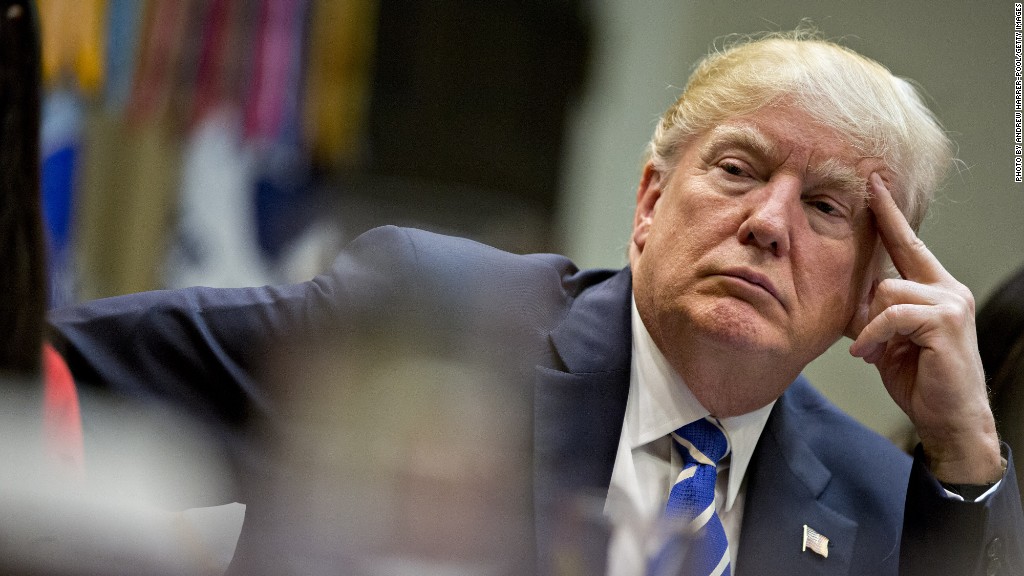
Tax reform is still months away, if not longer. But the so-called Big Six group of Republican negotiators from the House, Senate and Trump administration issued a statement Thursday outlining the most general principles they have agreed to.
Their biggest wishes, all in the name of greater economic growth, echo what proponents of reform have said before: Lower rates for individuals and businesses, and reform the tax code to make U.S. companies more competitive globally.
"The goal is a plan that reduces tax rates as much as possible, allows unprecedented capital expensing, places a priority on permanence, and creates a system that encourages American companies to bring back jobs and profits trapped overseas," the group wrote.
Related: Trump now says he wants to tax the rich
The "Big Six" include Treasury Secretary Steven Mnuchin, National Economic Council Director Gary Cohn, House Speaker Paul Ryan, Senate Majority Leader Mitch McConnell and the two top tax writers in Congress -- Senate Finance Committee Chairman Orrin Hatch and House Ways and Means Committee Chairman Kevin Brady.
Thursday's statement is devoid of any real detail save for one: The controversial border adjustment tax, proposed by the House GOP and championed by Ryan and Brady, is officially off the table for consideration.
The BAT would have fundamentally changed how imports and exports are taxed. It was an attempt to, among other things, incentivize companies to keep operations in the United States. But the concept was very complicated, and there's no prototype of it anywhere in the world.
What's more, the opponents of the change -- for example, importers of foreign-made goods such as retailers -- were up in arms, warning it would jack up consumer prices and damage industries and state economies.
"While we have debated the pro-growth benefits of border adjustability, we appreciate that there are many unknowns associated with it and have decided to set this policy aside in order to advance tax reform," the group said.
The BAT was also intended to be a revenue raiser that could offset about $1.2 trillion worth of rate cuts over a decade. Without the BAT, it's not clear what will pay for tax reform. That will be one of the many deeply contentious issues that lawmakers will have to grapple with if they are to pass tax reform.
Related: Tax reform: How would the GOP handle a $1.2 trillion loss?
Whether that grappling will be bipartisan is another big question mark. While the expectation is that Republicans would use rules that let them pass a tax package with a simple majority of votes, as they're doing in their efforts to replace Obamacare, members of the Big Six said, "our expectation is for this legislation to move through the committees this fall, under regular order." That would mean both Republicans and Democrats would help shape the bill through hearings.
But Democrats aren't convinced.
"This is a far cry from the last time Congress overhauled our tax code in 1986," said Ron Wyden, the top Democrat on the Senate Finance Committee.
"Republicans worked with Democrats from the get-go and knew that a long-term, bipartisan solution was necessary to create jobs and grow the economy."


